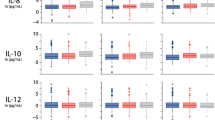Abstract
Background and Purpose:
Polymorphonuclear neutrophils (PMNs) protect the host from invading microorganisms, but excessive PMN activation after trauma causes tissue injury. Rapid monitoring of PMN function is critical for the assessment of the inflammatory state of trauma patients. Here, the authors adapted two simple and rapid methods to measure oxidative burst and degranulation of human PMNs in whole blood to avoid potential interference of cell isolation procedures with the assessment of PMN function.
Material and Methods:
Heparinized blood was drawn from healthy volunteers or trauma patients, preincubated at 37 °C for 5 min, and stimulated with N-formyl-methionyl-leucyl-phenylalanine (fMLP). Four assays for oxidative burst were tested: (1) cytochrome C; (2) homovanillic acid (HVA); (3) Amplex® Red; and (4) flow cytometry with dihydrorhodamine 123 (DHR). PMN degranulation was assessed with flow cytometry using antibodies to: (1) CD11b/Mac-1 (CD18); (2) CD63; and (3) CD66b (CD67).
Results:
With the exception of the DHR method, all methods to measure oxidative burst were found to be unsuitable in whole blood due to interference of plasma proteins and hemoglobin with the fluorimetric or photometric readouts. By contrast, all degranulation methods were suitable for whole-blood studies. However, for the assessment of formyl peptide-induced degranulation, anti-antibodies to CD11b/Mac-1 and CD66b were up to five times more sensitive than antibodies to CD63. Thus, the degranulation and DHR methods were optimized for increased sensitivity, speed, and specificity and their usefulness to measure PMN function in trauma patients was tested.
Conclusion:
The whole-blood methods based on flow cytometry with DHR, anti-CD11b/Mac-1, and anti- CD66b are rapid, simple, and reliable techniques to assess PMN function for trauma research.
Similar content being viewed by others
Author information
Authors and Affiliations
Corresponding author
Rights and permissions
About this article
Cite this article
Hashiguchi, N., Chen, Y., Rusu, C. et al. Whole-Blood Assay to Measure Oxidative Burst and Degranulation of Neutrophils for Monitoring Trauma Patients. Eur J Trauma 31, 379–388 (2005). https://doi.org/10.1007/s00068-005-1025-0
Received:
Accepted:
Issue Date:
DOI: https://doi.org/10.1007/s00068-005-1025-0




